
Water Reuse
Scope & Guideline
Elevating Water Science to Meet Tomorrow's Challenges.
Introduction
Aims and Scopes
- Innovative Water Treatment Technologies:
The journal emphasizes the development and application of innovative technologies for the treatment of wastewater and the enhancement of water quality, including advanced oxidation processes, membrane filtration, and bioremediation techniques. - Water Quality Assessment and Management:
Research on the assessment of water quality parameters, including chemical, physical, and biological factors, is a core focus. This includes studies on the impacts of reclaimed water on environmental and public health. - Policy and Public Perception:
The journal explores the social, economic, and regulatory aspects of water reuse, including public perception of reclaimed water and the effectiveness of policies promoting its use. - Sustainable Agricultural Practices:
A significant area of research includes the application of reclaimed water in agriculture, focusing on its benefits, risks, and the development of irrigation strategies that integrate water reuse. - Emerging Contaminants and Microbial Risks:
The journal addresses the challenges posed by emerging contaminants and the assessment of microbial risks associated with water reuse, aiming to develop strategies for their mitigation.
Trending and Emerging
- Advanced Oxidation Processes (AOPs):
There is a growing trend in the application of advanced oxidation processes for the degradation of pollutants in wastewater, which showcases the journal's commitment to exploring cutting-edge treatment technologies. - Integration of IoT and Smart Technologies:
Research exploring the integration of Internet of Things (IoT) technologies in water treatment and management systems is gaining momentum, reflecting the increasing role of digital innovation in improving water reuse efficiency. - Interdisciplinary Approaches to Water Reuse:
An emerging theme is the interdisciplinary approach to water reuse, combining insights from environmental science, engineering, social sciences, and public health to create holistic solutions for water scarcity and quality issues. - Public Health and Safety in Water Reuse:
Recent studies increasingly focus on the public health implications of reclaimed water use, including risk assessments and strategies to ensure safe application in various sectors, particularly agriculture. - Sustainable Resource Recovery from Wastewater:
Research on the recovery of valuable resources such as nutrients, energy, and water from wastewater is becoming more prominent, aligning with global sustainability goals and the circular economy.
Declining or Waning
- Traditional Wastewater Treatment Methods:
Research focusing solely on conventional wastewater treatment methods has decreased, as there is a growing emphasis on innovative and advanced treatment technologies that enhance efficiency and effectiveness. - Basic Water Quality Monitoring:
Studies that merely report basic water quality monitoring without integrating advanced analytical techniques or addressing emerging contaminants have become less frequent, indicating a shift towards more complex and comprehensive research. - Single-sourced Water Reclamation Studies:
There is a notable decline in studies that focus exclusively on single-sourced water reclamation, such as municipal wastewater, as the journal has increasingly published interdisciplinary research that combines various water sources and treatment methods.
Similar Journals

Soil and Water Research
Your Gateway to Cutting-edge Soil and Water ResearchSoil and Water Research, an esteemed journal published by the Czech Academy Agricultural Sciences, is dedicated to advancing the fields of Aquatic Science and Soil Science. With a strong commitment to open access since 2006, this journal facilitates the dissemination of high-quality research and fosters global collaboration among researchers, professionals, and students. Operating from the vibrant academic hub of Prague, Czech Republic, it serves as a key resource for those interested in pressing environmental and agricultural challenges. Featuring a robust H-index and ranking in the Q2 category for both Aquatic Science and Soil Science as of 2023, Soil and Water Research occupies a prominent position in Scopus, ensuring that published works reach a wide audience. The journal invites contributions that explore innovative methodologies and provide insights into soil and water management practices, thus playing a critical role in addressing sustainability issues within these interconnected domains. As researchers navigate the complexities of climate change and resource management, Soil and Water Research stands out as a vital tool for informed decision-making and impactful research.
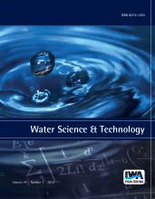
WATER SCIENCE AND TECHNOLOGY
Innovating water management for a better tomorrow.WATER SCIENCE AND TECHNOLOGY, published by IWA PUBLISHING, is a leading academic journal dedicated to advancing the field of water science and technology. With a rich history dating back to 1970, the journal provides a platform for innovative research and technological advancements, catering to the vital challenges faced within the realms of environmental engineering and water resource management. As evidenced by its strong ranking in Scopus, where it holds a position of #86 in Water Science and Technology and #77 in Environmental Engineering, the journal exemplifies significant scholarly contributions, reflected in its Q2 quartile status in both categories as of 2023. Although not an open access journal, WATER SCIENCE AND TECHNOLOGY ensures that its articles are widely available to researchers, professionals, and students passionate about sustainable water solutions. With a continued commitment to excellence, this journal plays a crucial role in shaping the discourse surrounding water quality, conservation, and technology innovation, making it an essential resource for all stakeholders in this critical field.
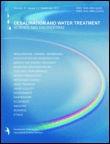
Desalination and Water Treatment
Elevating Water Treatment Practices GloballyDesalination and Water Treatment is a pivotal journal in the realm of water science and technology, focusing on the critical issues surrounding water desalination and treatment processes. Published by DESALINATION PUBL in the United States, this journal, with ISSN 1944-3994 and E-ISSN 1944-3986, serves as an essential resource for researchers, professionals, and students engaged in ocean engineering, pollution control, and innovative water management strategies. With a transitional coverage from 2009 to 2024, it holds a respectable position in the third quartile of various categories, including Ocean Engineering, Pollution, and Water Science and Technology, as of 2023. The journal is indexed in Scopus, reflecting its contribution to the field by ranking within the 39th to 45th percentile across relevant subject areas. Although not an open-access publication, it remains a crucial platform for disseminating influential research, thereby enhancing the global repository of knowledge on water treatment methodologies and sustainable practices in desalination.
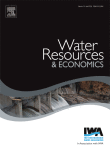
Water Resources and Economics
Connecting Water Science with Economic Strategies.Water Resources and Economics, published by Elsevier, is a prestigious journal that bridges the gap between water resource management and economic theory. With an ISSN of 2212-4284, this journal has been an essential resource in the fields of Economics, Geography, and Water Science since its inception in 2013. Holding a notable Q2 ranking in the 2023 Category Quartiles for Economics and Econometrics, Geography, Planning and Development, and Water Science and Technology, it showcases cutting-edge research that addresses the increasing importance of sustainable water management in a rapidly changing climate. The journal's rigorous peer-review process ensures the dissemination of high-quality studies that influence policy and practice. As it continues to grow within the academic landscape, Water Resources and Economics strives to provide actionable insights and innovative approaches for professionals, researchers, and students invested in the sustainability and economics of water resources. For additional information, please refer to the journal’s website for access and submission guidelines.

Water Resources and Industry
Connecting Academia and Industry for Water InnovationWater Resources and Industry, published by Elsevier, stands at the forefront of research in the critical fields of water science and technology, as well as geography, planning, and development. With an impressive 2023 impact factor that places it in the Q1 category for both Geography and Water Science on a global scale, this journal is a vital resource for academics, professionals, and students seeking to advance their understanding of water-related issues impacting industries worldwide. Since its inception in 2013 as an Open Access journal, it has fostered innovative research and practical solutions to challenges in water resource management. Located in the vibrant academic hub of Amsterdam, the journal encourages submissions that cover a broad spectrum of topics, from sustainable practices and policy development to technological advancements in water treatment and distribution. By making its research publicly accessible, Water Resources and Industry not only contributes to scholarly discourse but also empowers stakeholders to implement evidence-based strategies for water sustainability, thereby enhancing its relevance and impact in today's world.

Journal of Water Chemistry and Technology
Elevating Knowledge in Water Chemistry and Environmental SolutionsThe Journal of Water Chemistry and Technology, published by PLEIADES PUBLISHING INC, serves as a critical resource for researchers and professionals dedicated to advancing the field of water science. With an ISSN of 1063-455X and an E-ISSN of 1934-936X, this journal focuses on the intersection of water chemistry and technology, addressing crucial issues related to water quality, treatment methods, and environmental sustainability. Despite coverage discontinuation in Scopus after 2017, the journal has contributed significantly to knowledge dissemination in the domains of Environmental Science and Chemistry, evidenced by its ranking among the top journals in its categories. Although it does not provide Open Access options, the journal maintains a commitment to publish high-quality research that informs best practices and innovative technologies in water treatment and management. Situated in the heart of New York, it continues to be a vital platform for academics, professionals, and students seeking to enhance their understanding of water chemistry and its technological applications.
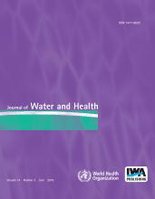
JOURNAL OF WATER AND HEALTH
Transforming water insights into impactful health solutions.The JOURNAL OF WATER AND HEALTH, published by IWA PUBLISHING, serves as a leading platform for disseminating innovative research related to water quality, sanitation, and public health. With its ISSN 1477-8920 and E-ISSN 1996-7829, this esteemed journal significantly contributes to the fields of Public Health, Environmental Science, and Microbiology, as evidenced by its robust rankings in several quartiles, including Q2 in Public Health and Water Science and Technology in 2023. This periodical enjoys a convergence of years from 2003 to 2024, underscoring its continuous relevance in addressing critical global issues such as water safety and infectious diseases. Although not an open-access journal, the insights and findings presented are pivotal for researchers, professionals, and students eager to contribute to the sustainable management of water resources and health improvements worldwide.
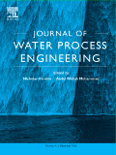
Journal of Water Process Engineering
Exploring Cutting-edge Research in Water Science and TechnologyJournal of Water Process Engineering, published by Elsevier, stands as a leading authority in the interdisciplinary fields of Biotechnology, Process Chemistry and Technology, and Water Science and Technology. With its ISSN 2214-7144, this journal has established itself since its inception in 2014, reaching its convergence year in 2024. Renowned for its high-impact contributions, it holds a prestigious Q1 ranking in 2023 across multiple categories, including Safety, Risk, Reliability and Quality and Waste Management and Disposal. The journal aims to advance knowledge and practice in water processing, addressing global challenges related to water scarcity, environmental safety, and sustainable technology. While the journal does not currently offer open access options, it remains a vital resource for researchers, professionals, and students dedicated to advancing water process engineering and management practices. By disseminating innovative research and methodologies, the Journal of Water Process Engineering plays a crucial role in shaping future technologies and strategies essential for water sustainability.
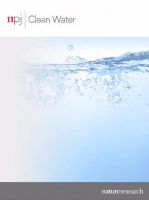
npj Clean Water
Championing global collaboration for water quality.npj Clean Water, published by NATURE PORTFOLIO, is a premier open-access journal dedicated to advancing the field of water science and technology. Since its launch in 2018, this innovative publication has quickly established itself as a leading platform for original research and policy discussions concerning clean water access and quality. With an impressive impact factor and categorized in the Q1 Quartile across multiple environmental science disciplines—including management, monitoring, pollution, and waste management—npj Clean Water stands out for its rigorous peer-review process and commitment to disseminating high-quality research. Researchers, professionals, and students involved in water-related challenges will find invaluable insights that address critical environmental issues and promote sustainable practices. Access to articles is freely available, encouraging global collaboration and knowledge sharing within the water sector. This journal embodies a significant step towards achieving innovation and policy advancements in the pursuit of a cleaner, safer water future.
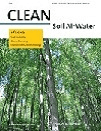
CLEAN-Soil Air Water
Pioneering Discoveries in Pollution and Water ScienceCLEAN-Soil Air Water, an esteemed journal published by Wiley, serves as a vital platform for disseminating research in the fields of environmental chemistry, pollution, and water science and technology. Operating under an Open Access model, it embraces the principles of knowledge sharing, making significant research findings readily accessible to a global audience. With an ISSN of 1863-0650 and an E-ISSN of 1863-0669, the journal has demonstrated its importance in the academic community, reflected in its Scopus rankings within the top quartiles of its categories. Established in 2007 and continuing through to 2024, CLEAN-Soil Air Water offers researchers, professionals, and students an opportunity to explore innovative studies that address pressing environmental challenges, facilitating an exchange of novel ideas and techniques essential for sustainable development. With a publication footprint in Germany and a growing international reputation, this journal is an invaluable resource for those dedicated to advancing the science and practices of environmental stewardship.